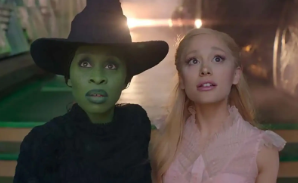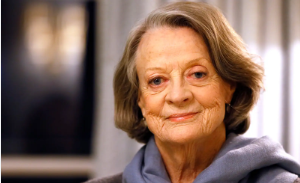For those unfamiliar with The Color Purple, it began as a novel under the same title and was written by author Alice Walker. The book was then adapted as a movie, under the musical genre, in 1985 with famous actors such as Oprah, Whoopi Goldberg, and Laurence Fishburne. It was then announced that come Christmas of 2023, there would be a new adaptation of the original film with a new-age spin on the movie.
The film follows two teenage sisters living in Georgia named Celie, played by Phylicia Pearl Mpasi, and Nettie, played by Halle Bailey, in 1909. They share an abusive father who took Celie’s kids away from her. He then also gave her up for marriage with an abusive husband, played by Colman Domingo, where she was torn apart from the only thing she loved, her sister Nettie. When Celie and Nettie were split, Nettie promised her she would write to her every day.
We watch as Celie goes through many hardships with her new husband (Mister) who beats her with the smallest inkling of his dissatisfaction. Celie then grows up, played by Fantasia Barrino, and befriends a woman named Sophia, played by Danielle Brooks, who teaches her how to be stronger regarding her abusive husband. We then see that Mister, the abusive husband, has been receiving and hiding the letters to Celie from her sister.
The infamous Shug Avery, a well-known and respected artist played by Taraji P. Henson, comes to town and quickly befriends Celie. Mister has a very big infatuation with Avery and she quickly takes advantage of that to get closer with Celie. The two women then have a more-than-friendly encounter that draws them closer. Celie then discovers, with the help of Shug Avery, that Nettie has been writing her every day, with her husband hiding the letters. Nettie tells her in the letters that she is in Africa with Celie’s children who were taken away from her.
Celie then stands up for herself and leaves her husband once and for all. She returns to her hometown and finds out that her abusive father is not her biological father. She also discovers that the store she grew up working at originally belonged to him so she begins a pants company of her own in the building that her biological father left to her after he passed. Celie is then reunited with her children and her sister at an Easter dinner she hosted. They then thank God for how far they have come.
The characters and the story itself may not be a true story, but it is based on events that occur fairly often in that time. This movie is arguably better than the original considering the newer version dives a bit deeper into the storyline while still continuing to follow the original plot. For example, in the 1985 adaptation, the relationship between Celie and Shug Avery was tampered down as they only shared a brief kiss. In the new version, Celie and Shug Avery share a kiss, sing a loving duet together in a romantic theater, and they ultimately spend the night together. Although there were no explicit scenes shown, the audience can infer what took place. The biggest difference between this film and the 1985 version is that Celie’s narrative is much more positive even though she is experiencing not-so-positive things. She also speaks directly instead of having an overarching narrator.
This movie has so many great qualities that continue to draw in its audience from the beginning to end of the film such as Celie being shown having her kids stripped away from her in the very beginning, watching Sophia get thrown in jail simply for standing up for herself to a white woman, Celie overcoming her fear of her husband and taking back her power. Another great quality is the soundtrack and the connection it has to the film. In some musicals, the random song outbreaks feel really out of place and almost hard to watch. This is not the case in this film. The music in the movie feels like it fits right where it needs to be. For example, Harpo, Sophia’s husband, decides to get physical with Sophia because Celie suggested it to him. Celie suggested it when Harpo told her that Sophia was too defiant and because she was also getting abused by Mister, that is all she knew. Sophia then confronts Celie and sings her song titled “Hell No!” which talks about how she would not take abuse from any man, this song then leads her to leave Harpo. This song fit right into what was happening in the film but it fit naturally and did not have that forced feeling. The dialogue in the film was very fitting for the time. Considering Celie never went to school and yet her sister did, she speaks broken English and her sister slowly teaches her as they grow up. Though this film does have more mature ideas in it regardless, it is still a great watch and I recommend it to anyone who may be looking for a movie with a heavier storyline.







